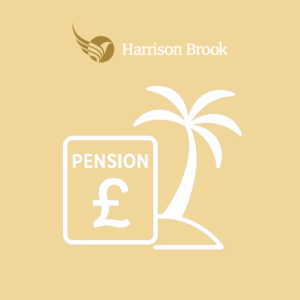
The Autumn Budget 2025 has touched almost every aspect of UK taxation, savings and pensions, and that includes British expats living abroad. While the headline focus was on funding public services and reducing debt, many of the changes will affect those with UK-based income, property, pensions or investments.
If you receive dividends, rental income, savings interest, a UK pension or own UK property, or plan to, you’ll want to read on.
Introduction to Key Changes
The UK Autumn Budget 2025 is shaping up to be one of the most consequential in recent years, with sweeping changes expected across the tax regime. As the government seeks to address the fiscal deficit and demonstrate budget responsibility, British expats should prepare for a range of tax rises and reforms that could impact their financial planning. Among the most closely watched proposals are potential increases to capital gains tax rates, which could significantly affect those with UK investments or property. Adjustments to income tax thresholds and national insurance contributions are also on the table, potentially reducing disposable income for anyone with UK-sourced earnings. Pension contributions may face new limits or rules, further influencing long-term retirement strategies. The introduction of new taxes, such as a possible exit tax for those leaving the UK, underscores the need for expats to stay informed and proactive. With the Autumn Budget 2025 set to reshape tax thresholds and the broader tax landscape, British expats must be ready to adapt their financial strategies to protect their wealth and ensure compliance.
What the Budget Changes Mean for Expats
Income tax thresholds frozen until 2030–31
The Government has extended the freeze on income-tax thresholds, including the personal allowance, until 2030–31.
This policy of tax threshold freezes leads to a phenomenon known as fiscal drag. As incomes (or rental yields, pension withdrawals, dividend income) rise modestly with inflation, more of your income is likely to be pushed into higher tax brackets, even if real income hasn’t increased. As a result, more individuals may have to pay tax on income that was previously untaxed. For expats getting UK-based income, this “stealth tax” effect should be top of mind.
Higher tax on savings interest, dividends, and rental or property income
From April 2026, the ordinary and higher-rate dividend tax goes up by 2 percentage points, from 8.75 % to 10.75 % at the basic rate, and from 33.75 % to 35.75 % at the higher rate. The additional dividend rate remains at 39.35 %.
These changes will impact basic rate taxpayers and higher earners differently, with basic rate taxpayers facing increased liabilities on dividends and savings, while higher earners may need to adjust their financial strategies to maintain tax efficiency.
Savings interest and property income tax rates will also increase, by 2 percentage points across all bands (basic, higher and additional), from April 2027. The reduction in tax relief on dividend and savings income means both individuals and companies should review their use of available reliefs to minimize the impact.
For expats relying on UK savings or rental yields, your post-tax return may shrink considerably over the next few years.
Private pension and salary-sacrifice changes
The Budget confirms a cap on National Insurance (NI)-exempt pension contributions via salary sacrifice. From April 2029, only the first £2,000 per year of such contributions will escape NI charges. Any excess will be treated as standard pension income.
These changes will directly impact how expats and UK residents manage their UK pensions, particularly in light of potential reforms to pension allowances and access options.
That’s likely to reduce the long-term appeal of salary-sacrifice pension strategies for many expats, especially those moving between jurisdictions or hoping to preserve pension-tax efficiencies.
“Mansion tax” and high-value property surcharge
A new mansion tax will apply from April 2028 to properties with a property value over £2 million, introducing an annual council-tax surcharge that targets high-end homeowners and second-home owners, including many expats. However, only a tiny proportion of UK property owners will be affected by this new mansion tax, as it is limited to those with properties above the threshold. Those impacted will be facing tax bills that could place significant financial strain, especially on retirees and long-term owners with fixed incomes.
This is on top of higher taxes on rental or property income for landlords. For UK property owners, particularly expats, these changes mean increased holding costs and potentially reduced net yield from rentals. These reforms are part of broader discussions around property taxation, including possible changes to stamp duty land tax, which could further influence property transactions and the overall housing market.
Capital Gains Tax Reforms: What Expats Need to Know
Expats with UK assets should pay close attention to the government’s proposed capital gains tax (CGT) reforms. One of the most significant changes under consideration is the alignment of capital gains tax rates with income tax rates, which could mean a substantial increase in tax paid when selling assets such as property, shares, or business interests. The annual exempt amount for CGT may also be reduced, meaning more gains will be subject to tax, and the potential removal of the base-cost uplift on death could result in higher inheritance tax bills for beneficiaries. For those who have benefited from business asset disposal relief, changes to this relief could impact the tax efficiency of selling a business or shares. These reforms would affect not only direct investors but also those with UK investments held through asset management firms. Given the complexity and potential cost of these changes, expats are strongly advised to seek professional advice to optimize their tax position and ensure their investment strategies remain robust under the new rules.
Business Taxes and Investments for Expat Entrepreneurs
For expat entrepreneurs with business interests in the UK, the Autumn Budget 2025 could bring notable changes to business taxes and investment incentives. The government is considering reforms to the corporate tax system, which may include adjustments to tax rates and the introduction or removal of certain allowances. While there may be new tax reliefs aimed at encouraging research and development or supporting small businesses, the proposed exit tax could present a new challenge for those planning to relocate or restructure their business operations abroad. This exit tax could potentially increase the tax burden on entrepreneurs moving assets or business interests out of the UK, making careful planning essential. To navigate these changes and make the most of available opportunities, expat entrepreneurs should consult with the UK’s leading wealth management and asset management firms. Professional guidance can help ensure that business taxes are optimized and investments are structured to withstand the evolving tax landscape.
National Insurance and VAT: Cross-Border Implications
The Autumn Budget 2025 is expected to introduce changes to national insurance contributions and value-added tax (VAT), both of which carry important cross-border implications for expats. Reforms may include adjustments to national insurance rates and thresholds, potentially affecting the net pay of those with UK income or pension contributions. Simplification of the VAT system is also under discussion, with the possibility of reducing the number of VAT rates to streamline compliance. Additionally, the government is considering a tourist tax, which could impact expats who own UK property and rent it out to visitors, generating additional revenue for the Treasury. Changes to the cash ISA limit may also be on the horizon, affecting expats who use these savings vehicles to earn tax free interest. With these potential reforms, it is crucial for expats to stay informed and seek professional advice to ensure compliance and to make the most of their savings and investment strategies under the new rules.
Tourist Tax and Other Measures Affecting Expats
Among the new measures being considered in the Autumn Budget 2025 is the introduction of a tourist tax, which could have direct implications for expats who own property in the UK. This tax would be levied on visitors, potentially increasing the costs for those who rent out their UK homes or holiday lets, and generating revenue for the UK government. In addition, reforms to the council tax system are on the agenda, which may alter the way property taxes are calculated and collected, impacting the annual costs faced by expat property owners. The so-called mansion tax, targeting high-value properties, is also under discussion and could significantly affect expats with luxury homes in the UK. These changes may influence the housing market by reducing demand for high-value properties and could have knock-on effects on the mortgage market, especially for those with complex or adverse credit. Expats should review their property investment strategies and seek expert advice to minimize their tax liabilities and adapt to the evolving landscape.
Pensions, State Pension and Long-Term Expat Planning
State Pension uprated, but frozen for many overseas retirees
The Budget pledges a 4.8 % increase in the UK State Pension from April 2026, up to around an extra £575 a year.
That said, for many expats living in countries without a reciprocal agreement, uprating may remain frozen, so the real-terms value of pensions can still erode over time.
Existing pension transfer rules remain but planning becomes more important
There’s no change to the long-standing rules governing overseas pension transfers (e.g., QROPS, International SIPPs). However, with salary-sacrifice benefits cut and tax on passive income rising, expats should reassess pension strategies more frequently.
Cross-border investment and saving: think beyond cash ISAs
The Budget included cuts to the attractiveness of cash savings. Many commentators note that savers and investors, including expats, will need to reassess their use of UK cash ISAs and rental or dividend income structures. Changes to the cash ISA allowance could significantly impact expats’ savings strategies, as lower allowances may limit the amount they can invest tax-free. Government proposals to slash cash ISA allowances could restrict the flow of cash deposits into building societies, which are a key funding source for mortgages, including for expats and borrowers with complex credit needs. If ISAs become less attractive, some savers may move their funds into taxable savings accounts, seeking flexibility or potentially higher returns outside of tax-advantaged wrappers. Managing very savings pots, such as cash ISAs and stocks and shares ISAs, is increasingly important for both short-term goals like house deposits and long-term investing. Expats are also encouraged to consider investing in the stock market through stocks and shares ISAs for potentially higher returns and diversification. Understanding how the mortgage market works is crucial, as it relies heavily on cash deposits from savers, and any changes to ISA funding can have a direct effect on mortgage availability and rates.
Holistic cross-border advice is now more relevant than ever.
FAQs – How UK Autumn Budget 2025 Affects Expats
Will I lose my UK pension if I move abroad?
No. The Budget does not remove entitlement to the UK State Pension. But whether your payments are uprated annually depends on residence location and existing reciprocal agreements.
What happens to dividend and rental income tax for expats?
Dividend income tax rises 2 percentage points from April 2026; savings and rental income tax rise from April 2027.
Are cash ISAs still a safe bet for expats?
Cash ISAs remain available, but with rising taxes on savings and pressure on returns, many expats may find better value in diversified international investments.
How will salary-sacrifice pension changes affect me?
From April 2029, only £2,000 of salary-sacrifice pension contributions will be NI-exempt. Larger contributions will be subject to NI, reducing the attractiveness of this route.
Do I need to report UK-based income if I live abroad?
Yes, income from UK property, dividends, savings or pensions remains taxable under UK law. The Budget’s changes make thorough reporting and tax-efficient structuring more important than ever.
What Should Expats Do Now?
The Autumn Budget 2025 introduces meaningful changes, but for expats the message is clear: keep calm and stay strategic. Now is the time to review your financial position with clarity rather than urgency. Focus on building a globally diversified investment portfolio that reduces reliance on any one country’s tax policy. Reassess your UK-sourced income, whether rental income, dividends or savings interest, to understand how rising tax rates and frozen thresholds will affect your net returns over the coming years.
Review your pension strategy too. With salary-sacrifice benefits due to tighten and tax on unearned income rising, it is essential to ensure your pension structure remains efficient for long-term drawdown while living abroad. If you own UK property, build in the impact of the new high-value surcharge from 2028 and increasing tax on rental income.
Above all, align your investment and savings strategy with your long-term goals, not short-term headlines. With calm planning, a well-constructed portfolio and the right cross-border financial advice, expats can continue to build and protect wealth confidently, no matter where in the world they live.
Speak to a Cross-Border Adviser
The Autumn Budget 2025 highlights how quickly the financial rules for expats can change. At Harrison Brook, our advisers specialise in cross-border financial planning. We help you design tailored strategies for pensions, investments, property and savings, aligning with your expat lifestyle and long-term goals.
Book a free consultation today and secure your financial future abroad.



